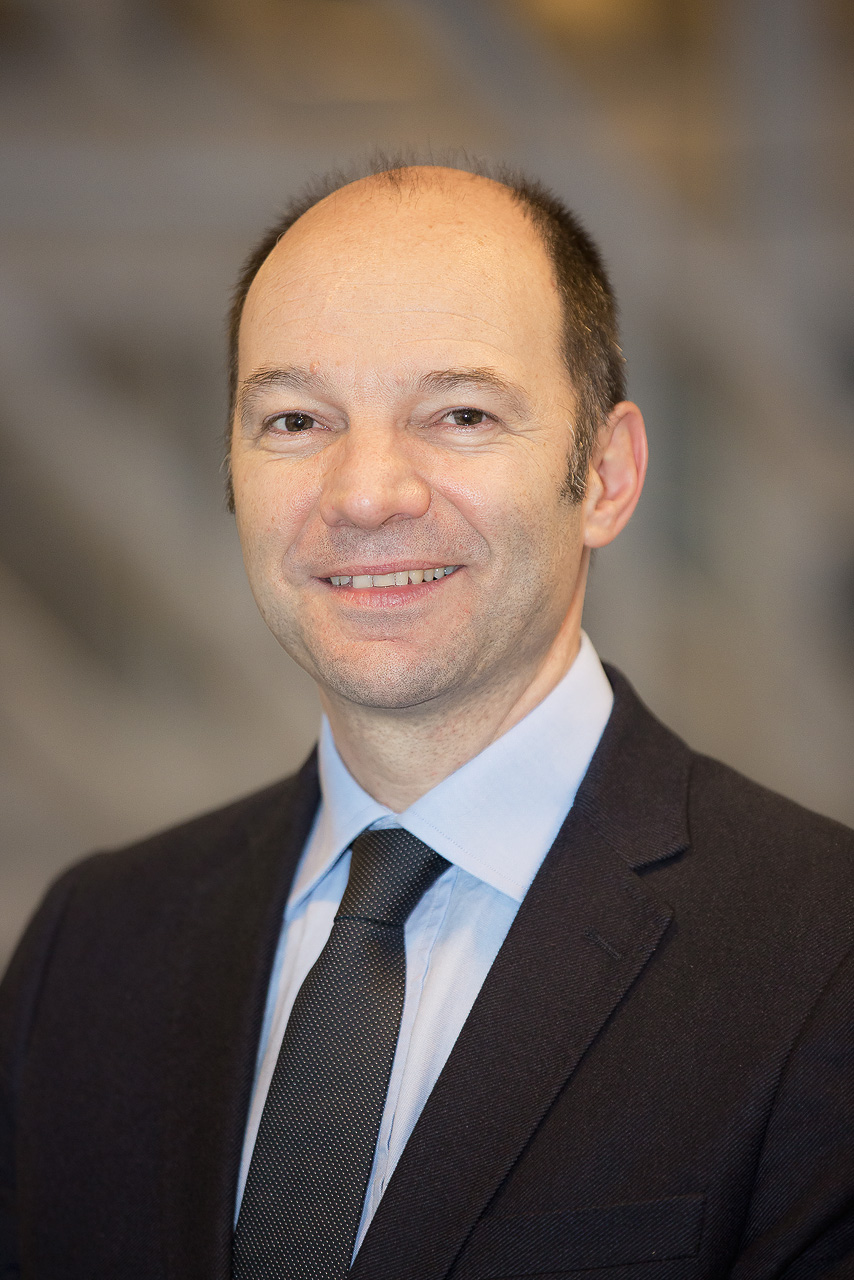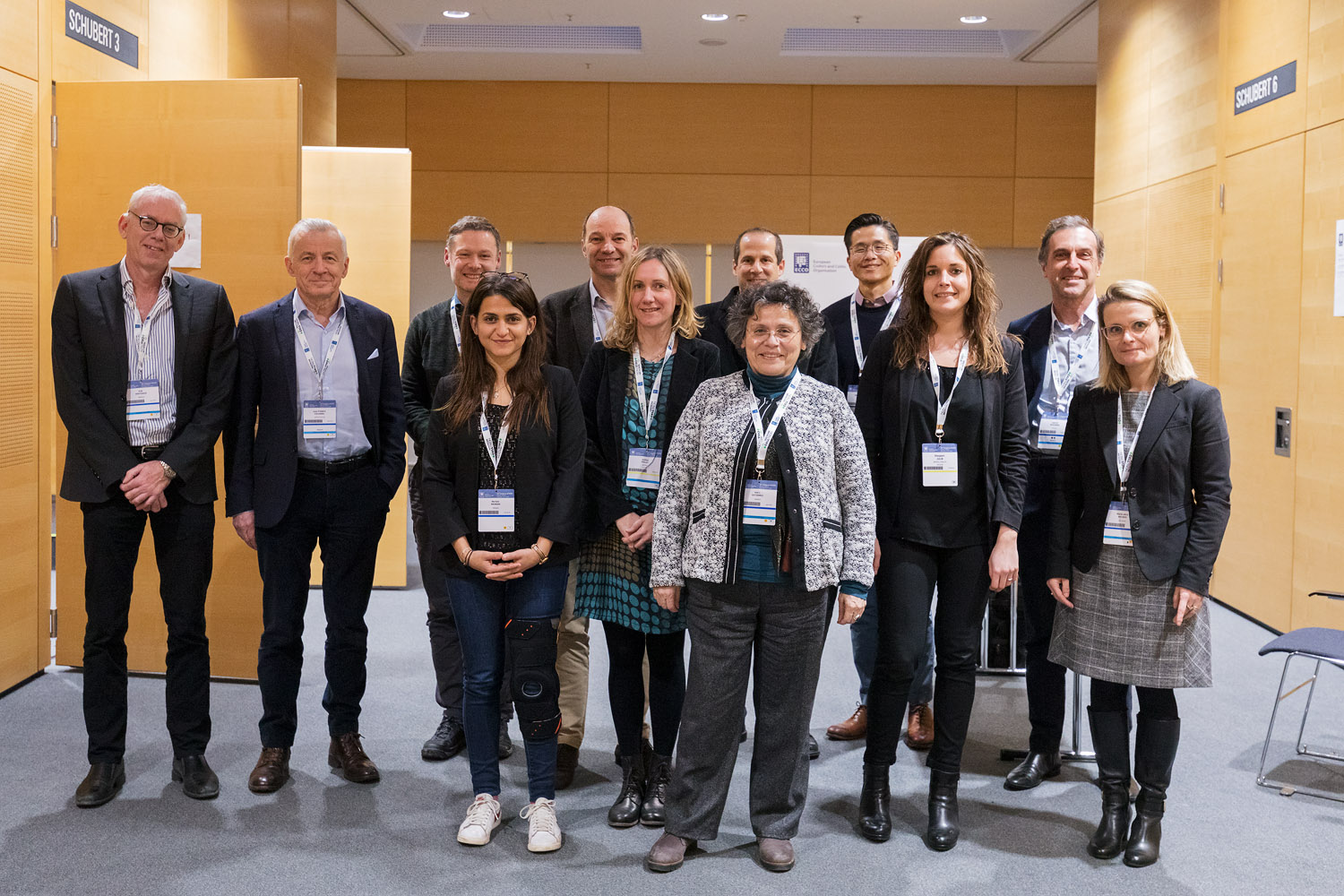News from BIOCYCLE
Edouard Louis
 Edouard Louis © ECCO |
The BIOCYCLE project has now been ongoing for 5 years. This project, funded by the European Commission under the Horizon 2020 programme, aims to explore different aspects of the question of treatment de-escalation in moderate-severe Crohn’s Disease that first requires combination therapy with anti-TNF and antimetabolites to control the disease. Once the disease has been stabilised, an unsolved question is to whether it is possible to de-escalate therapy. This question is important for several reasons, including safety, tolerance, quality of life and costs, to name the most prominent. BIOCYCLE comprises nine work packages, including a randomised three-arm, controlled clinical trial on 210 patients in seven European countries, several patient and health care provider surveys in Europe and the United States, a biomarker research programme and pharmaco-economic analysis. ECCO is mainly involved in the monitoring of the project (through SciCom and ClinCom) and is the work package leader for dissemination of the results. BIOCYCLE is a 7.5-year project and was launched in April 2015.
The global aim of Biocycle is to try and bring an integrated multidimensional and tailored response to this difficult question of treatment de-escalation in Crohn’s disease, also taking into account patients’ preferences and perspectives.
What has been achieved so far?
All work packages have now started and made progress.
The SPARE clinical trial is going well despite recent difficulties induced by the COVID-19 crisis. Two hundred and fifty-six patients have finally been screened and by the end of March 2019 the required 210 patients had been randomised in seven countries (France, Belgium, United Kingdom, Germany, Sweden, Australia and the Netherlands) in the three treatment arms: continuing combination therapy with infliximab + immunosuppressant, stopping infliximab or stopping immunosuppressant. The end of the trial is now foreseen for March 2021 and we hope to be able to present the first results at ECCO’22.
The health care provider and patient surveys, coordinated by the CCFA in the United States and by the patients’ association AFA in France, with the help of ECCO, have been completed. More than 400 patients and close to 300 doctors participated in the surveys. Results were presented at ECCO’17 and ECCO’18 and recently published in Clinical Gastroenterology and Hepatology.
As we have now completed recruitment in the clinical trial, the biological samples collected at baseline and regularly transferred to the central biobank in Liège have been transferred for a first set of biomarker research in Oxford (DNA methylation, miRNA, glycomics, etc.), in Liège (proteomics, central C-reactive protein and faecal calprotectin) and Tel Aviv (pharmacokinetics). First results should be submitted for presentation at the next ECCO Congress in 2021.
The pharmaco-economic work package, led by Gothenburg University, has allowed the generation of a theoretical pharmaco-economic model for the cycling of immunomodulators or biologics based on a Markov-type decision tree model. The results of this model were presented at ECCO’19 and have now been published as a full paper in the Journal of Crohn’s and Colitis. The model will soon be adapted and refined thanks to the data coming from the SPARE clinical trial.
The final global aim of BIOCYCLE is to generate a multidimensional integrated tool to help in decision making with respect to treatment withdrawal and cycles in Crohn’s Disease and, more broadly, in immune-modulated inflammatory diseases. To this end, the consortium is working on a clinical decision support system. A publication on this concept has recently appeared in the Journal of Crohn’s and Colitis and the consortium is currently working on a theoretical model. This theoretical model will be built with the help of the UR-CARE database. Indeed, a collaboration is under development with UR-CARE and the participating centres to create a treatment decision algorithm based on a large number of retrospective real-life data and also to further use UR-CARE to improve a decision model reinforced by deep learning based on the prospective follow-up of the patients. These models will then be fed by the results of the SPARE clinical trial and the other BIOCYCLE work packages, which will also contribute to their refinement.
Beyond generating original data on treatment de-escalation, a further mission of BIOCYCLE is to disseminate these results to make sure that they can be incorporated in routine practice with the aim of improving the care of IBD patients. To this end, BIOCYCLE will organise, in partnership with ECCO, a Topical Review on treatment cycles in IBD. Three ECCO Workshops and e-learning material will also be organised based on the content of this topical review. These events are planned for 2022.
The third administrative and scientific report was approved by the European Commission in autumn 2019 and the next is due in spring 2021.
For more information, see: the BIOCYCLE website: http://biocycle-project.eu/; EU reference: grant agreement No 633168 – BIOCYCLE (PHC-13-2014).
